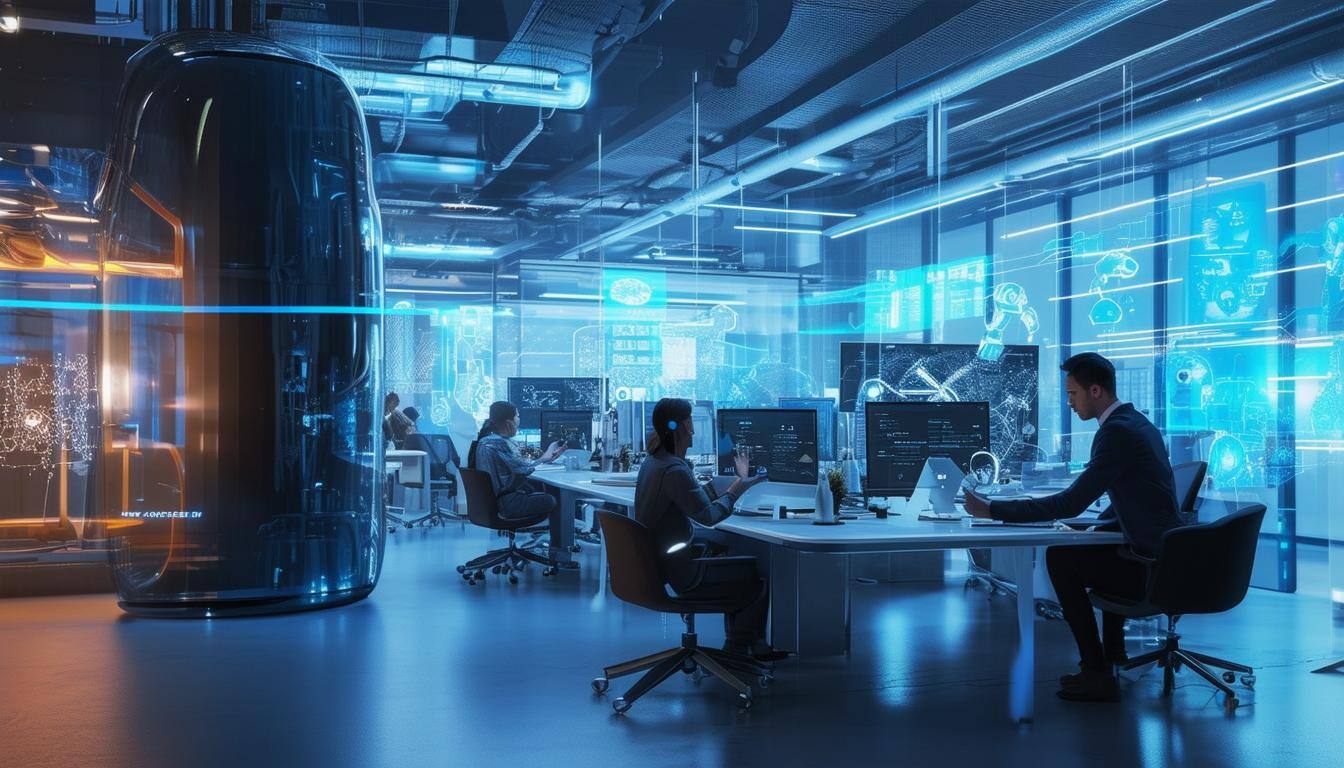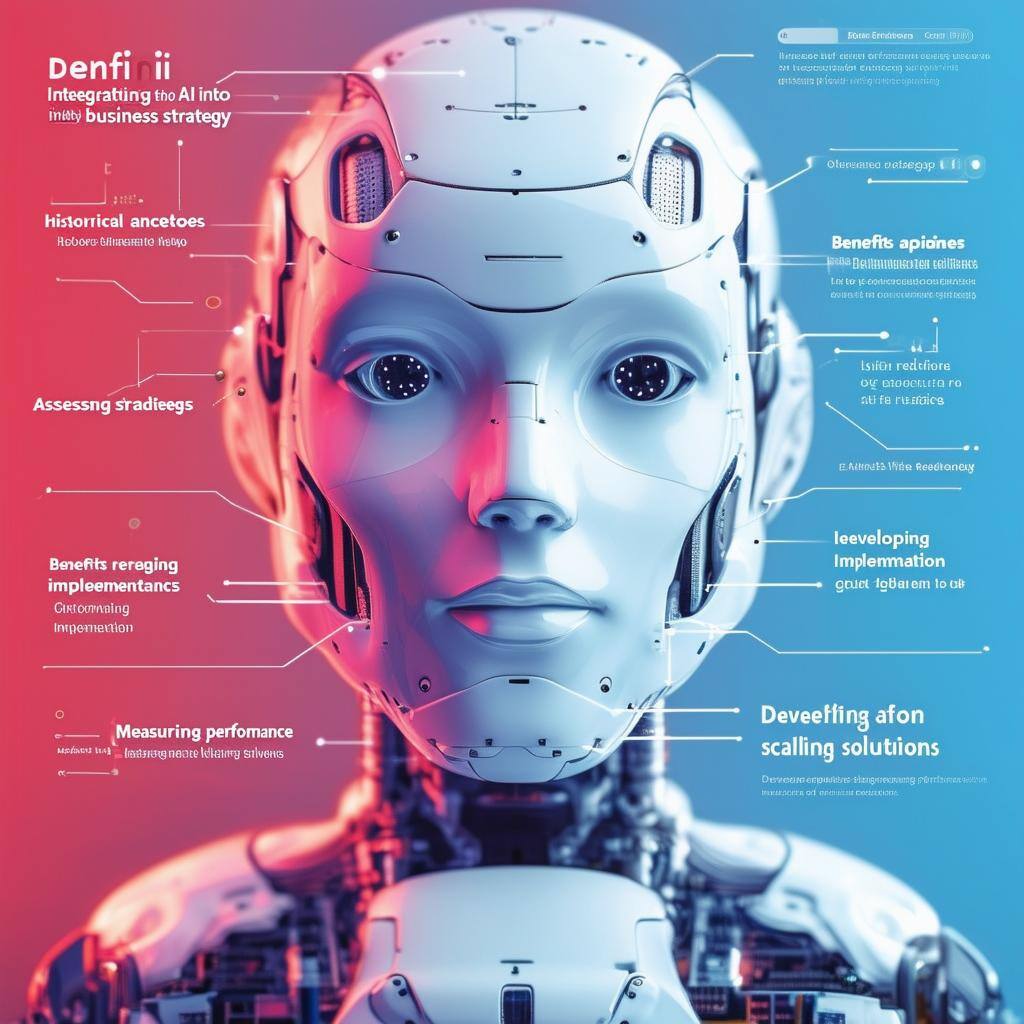5 min read
The Future of AI: What to Expect in the Coming Years
![]() Totalcare IT
:
Feb 10, 2025 10:00:00 AM
Totalcare IT
:
Feb 10, 2025 10:00:00 AM
Artificial Intelligence (AI) is revolutionizing industries, creating new opportunities and challenges for businesses of all sizes. As technology continues to evolve, understanding the future trajectory of AI is crucial—not just for staying competitive, but for leading innovation. This article highlights the key AI developments to expect in the coming years and offers actionable insights on how businesses can prepare for these changes.
Emerging AI Technologies
AI technology is evolving rapidly, with several key areas set to transform how businesses operate. These advancements are expected to have far-reaching implications across industries.
Advanced Machine Learning and Deep Learning
Machine learning (ML), especially deep learning, is pushing the boundaries of what AI can achieve. Deep learning algorithms, modeled after the human brain’s neural networks, are enabling AI to process vast amounts of data more efficiently and make highly accurate predictions. This is already evident in fields like image recognition, natural language processing (NLP), and even drug discovery.
For example, Google DeepMind’s AlphaFold has made significant progress in predicting protein folding, a breakthrough that could accelerate advancements in healthcare, including drug development. These kinds of breakthroughs will continue to unlock new possibilities in industries such as finance, healthcare, and even creative fields.
Natural Language Processing (NLP) and Conversational AI
NLP is another area that’s poised for significant growth. NLP enables computers to understand and process human language, making interactions between people and machines more natural and intuitive.
Take OpenAI's GPT-3, for example. This AI can write essays, compose poetry, and generate reports, which illustrates its potential for automating complex tasks in writing and communication. As NLP capabilities improve, businesses can expect even more sophisticated tools for customer service, content creation, and internal communication. In the future, AI-powered virtual assistants will seamlessly engage with customers, understand context, and provide real-time, personalized responses.
AI in Edge Computing
Edge computing, which processes data closer to where it is generated (rather than sending it to a centralized cloud server), is becoming a key enabler of AI's future applications. By reducing latency and bandwidth costs, edge computing supports real-time decision-making without relying on cloud-based processing.
This is particularly impactful in industries like autonomous vehicles. For example, self-driving cars process data from sensors in real time to make immediate decisions—something that’s only possible through edge computing. In the coming years, businesses across sectors will increasingly leverage edge AI to enhance efficiency, reduce latency, and make more informed decisions on the fly.
Industry-Specific AI Trends
AI is not only evolving in terms of technology but also across various industries. The next few years will see AI becoming more deeply integrated into daily operations, transforming the way businesses operate.
Healthcare: Revolutionizing Patient Care
In healthcare, AI is already improving diagnostic accuracy, enhancing patient care, and enabling personalized treatments. AI-powered tools can analyze medical images, such as X-rays and MRIs, to detect issues like tumors with a high degree of precision.
AI is also enabling predictive analytics, which helps healthcare providers forecast health risks and optimize treatment plans for patients. Over time, AI will play an even greater role in drug discovery and clinical trials, significantly reducing the time and cost involved in bringing new therapies to market.
Finance: Enhancing Efficiency and Security
AI is fundamentally changing how financial institutions operate, from fraud detection to customer service. AI systems can analyze transaction patterns to detect fraud in real-time, helping banks and payment systems quickly respond to suspicious activity. Similarly, AI is improving algorithmic trading, offering enhanced accuracy and speed.
The future of finance will likely involve even deeper AI integration, particularly in areas like risk management and financial forecasting. As AI becomes more adept at handling large datasets and predicting market trends, its role in finance will continue to expand.
Retail and E-Commerce: Personalization and Efficiency
AI is transforming retail and e-commerce by helping businesses provide personalized shopping experiences, optimize inventory management, and streamline supply chains. AI-powered recommendation engines, which suggest products based on customer preferences and past behavior, are already commonplace on platforms like Amazon and Netflix.
In the coming years, AI will further enhance customer experience by predicting customer needs, improving stock replenishment, and providing personalized marketing. AI will also enable retailers to optimize their supply chains in real-time, reducing costs and improving service delivery.
Manufacturing: Automation and Predictive Maintenance
AI is improving manufacturing through better predictive maintenance, automation, and quality control. AI systems analyze machine data to predict potential failures before they occur, minimizing downtime and repair costs.
This will take automation in manufacturing to new heights. AI-powered robots will handle more intricate tasks, driving production efficiency and ensuring the highest quality standards are met. The future of manufacturing will increasingly rely on AI to enhance operational processes and drive innovation in production.
Ethical and Regulatory Considerations
As AI continues to evolve, ethical concerns and regulatory issues will become more prominent. Understanding these challenges and preparing for them will be crucial for businesses.
AI Ethics: Addressing Bias and Transparency
AI’s growing influence brings new ethical challenges, particularly around bias in algorithms and the transparency of decision-making processes. Businesses must ensure that AI systems are designed to be fair, transparent, and accountable.
The ethical implications of technology have always been a concern. Just as the automobile raised safety and environmental issues when it was first introduced, AI’s rapid development requires thoughtful ethical considerations to prevent harm and ensure equitable outcomes for all users.
Regulation and Compliance: Navigating Changing Guidelines
Governments and organizations are beginning to introduce regulations to govern the use of AI, focusing on areas like data privacy, algorithmic accountability, and transparency. As AI becomes more pervasive, businesses can expect more comprehensive regulations to emerge, which may include mandatory audits, explainable AI, and stricter data protection rules.
To stay ahead, businesses should actively engage with these regulatory developments. Proactively adopting AI best practices and ensuring compliance with emerging standards will help mitigate risks and ensure that your business remains on the right side of the law.
Strategic Implications for Businesses
AI's transformative potential offers several strategic advantages for businesses. But, to capitalize on these benefits, organizations will need to adopt effective AI strategies and prepare their workforce.
Integration and Implementation: A Strategic Approach
Successfully integrating AI into your business requires a well-planned strategy. Start by identifying areas where AI can add value, such as automating routine tasks, enhancing data analysis, or improving decision-making processes. Develop a clear roadmap that aligns AI adoption with your broader business goals.
Just as companies that embraced digital technology early gained a competitive edge, businesses that strategically adopt AI will position themselves as leaders in their respective industries.
Workforce Impact: Preparing for Change
AI will inevitably disrupt the job market, automating certain tasks while creating new roles and opportunities. Businesses should invest in employee training and reskilling to help workers adapt to this changing landscape.
Historically, technological advancements have reshaped job markets—consider the rise of computing and IT careers following the computer revolution. Similarly, AI will drive demand for skills in data science, AI ethics, and human-AI collaboration. Preparing your workforce for these changes will be crucial for staying competitive.
Competitive Advantage: Leveraging AI for Growth
AI offers a significant competitive advantage for businesses that embrace it effectively. From improving customer service to enhancing operational efficiency, AI can help businesses stay agile and responsive to market changes. Companies that integrate AI into their operations early will be better positioned to gain a market edge and drive sustainable growth.
Preparing for the Future of AI
Building an AI-Ready Organization
To prepare for the future of AI, businesses should focus on becoming AI-ready. This means investing in AI infrastructure, cultivating a culture of innovation, and ensuring that your organization is equipped to integrate AI technologies effectively.
Take inspiration from companies like GE and Siemens, which have stayed at the forefront of technological innovation by prioritizing R&D and embracing new technologies. Similarly, your business can foster an AI-ready environment by encouraging experimentation, investing in new tools, and developing an AI strategy that aligns with your long-term vision.
Continuous Learning and Adaptation
AI is evolving at an astonishing rate, and businesses must be prepared to adapt. Staying informed about the latest trends, investing in continuous learning for your team, and being flexible with your strategies will help you keep pace with this rapidly changing landscape.
Just as Intel’s focus on semiconductor innovation helped the company thrive over decades, businesses today can secure long-term success by staying ahead of AI advancements and continuously evolving their approaches.
How can this help you?
The future of AI holds vast potential across industries like healthcare, finance, retail, and manufacturing. However, ethical considerations and regulatory developments will shape how AI is integrated into society. By embracing these trends, businesses can unlock new opportunities for growth and innovation.
- Adopt Emerging AI Technologies: Identify key areas where AI can be integrated into your operations.
- Strategize AI Integration: Develop a roadmap for AI adoption that aligns with your business goals.
- Invest in Workforce Development: Prepare your team for the future of work by upskilling in areas like data science and AI collaboration.
- Stay Informed and Adapt: Keep up with AI developments and remain flexible as technology continues to evolve.
AI is set to transform industries in the coming years. Start building your AI strategy now by investing in the right tools, preparing your workforce, and staying ahead of emerging trends. By taking a proactive approach, your business can leverage AI to drive innovation, enhance efficiency, and gain a competitive edge.

The Surprising Benefits of AI for Your Business Revealed!
Artificial Intelligence (AI) might sound like something out of a sci-fi movie, but it’s a game-changer for businesses of all sizes, especially small...

The Ultimate Guide to Integrating AI into Your Business Strategy
Artificial Intelligence (AI) has swiftly transitioned from a futuristic concept to a transformative force reshaping industries across the globe. For...


